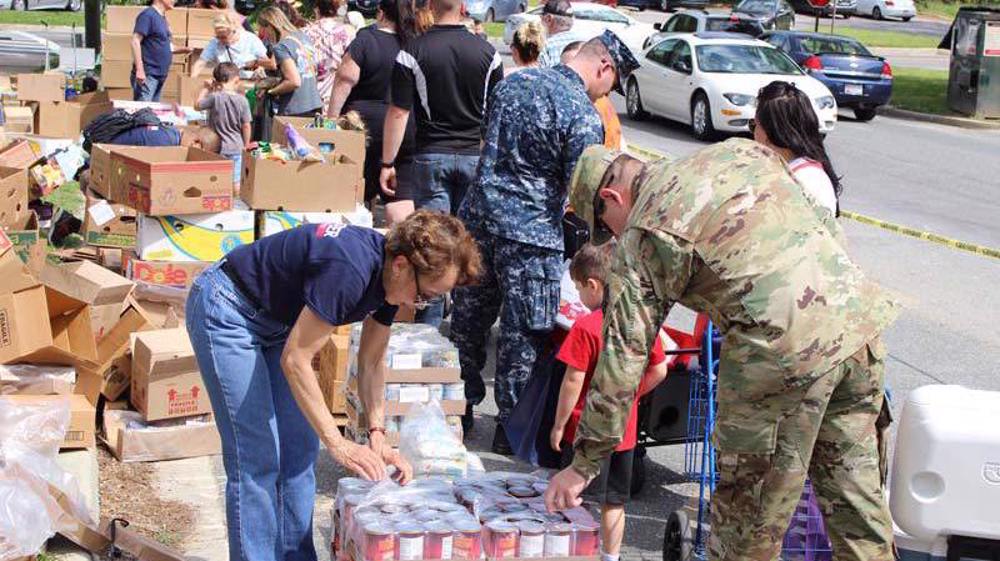Lawmakers seek expert help to address food insecurity among US veterans and military families
Several members of Congress have reached out for expert advice on how to address growing hunger and food insecurity in the US military and veteran communities, a stigma a lawmaker called “a national disgrace.”
“Across America today, there are spouses and children of service members who may not know where their next meal is coming from,” Rep. James McGovern, a Democrat from Massachusetts and chairman of the House Rules Committee said at a roundtable discussion on the issue.
“And for too many men and women who served our nation and are back in the civilian community, they and their families are struggling to put food on the table,” he said.
“Too often, hunger is hidden among these communities. Service members are taught to make good with what they have. Numbers are hard to come by, because those who serve don’t want to risk their futures by coming forward, or struggle to ask for help.”
McGovern said the situation was “a national outrage.” He and other members of Congress asked for suggestions from experts and advocates taking part in the roundtable discussion on how to tackle the problem.
Colleen Heflin, professor of public administration and international affairs at Syracuse University, said one way to alleviate the hunger problem in the military would be to provide service members and veterans with automatic SNAP benefits, formerly known as food stamps.
Advocates said that there was an urgent need for more clear data about the problem to get a better understanding of the situation.
“We suffer from a lack of systematic information about the level of food insecurity among active-duty members. This means we can’t identify and focus on the pockets of where it be higher than others,” said Heflin.
“If DoD (Department of Defense) collected systematic information and made it available on food insecurity and food assistance participation, this would identify the problem,” she added.
There is scant information on how widespread the problem of hunger is among active military personnel, veterans, and their families.
While some studies show that military men and veterans are faring slightly better than the general public, a growing body of research has indicated that food insecurity is more prevalent in the military and among veterans.
Studies also consistently find higher rates of food insecurity among certain sub-groups of veterans, including Black, Latino, and other non-white veterans.
According to a study published in May, a third of respondents at a major US Army facility were classified as marginally food insecure in 2019.
Among nearly 7,800 military family respondents, 12.5 percent reported that they were food insecure, found the survey by the Military Family Advisory Network (MFAN).
The study also found that the COVID-19 pandemic had an adverse impact on food insecurity, with a fifth of respondents reporting they were grappling with the problem from early 2020 through early 2021.
Experts identify low household income as the main cause of food insecurity among US military families, as is the case with the general public.
Other factors such as being a racial minority, experiencing homelessness or suffering physical or mental illnesses also put veterans at greater risk.
Explainer: Jam-e Jam 1 – Iran’s giant leap into geostationary orbit and a new broadcasting era
Iran says entered talks with US with 'result-oriented approach'
Iran FM, IAEA chief meet ahead of indirect talks with US
Israeli soldier admits to murder, rape in Gaza during live stream
VIDEO | Pakistan protesters condemn US-Israel threats, mourn mosque victims
VIDEO | Press TV's news headlines
Tehran slams US ‘inhumane’ sanctions against Cuba
Two Palestinian children killed in PA ambush; Hamas slams attack as ‘black mark’










 This makes it easy to access the Press TV website
This makes it easy to access the Press TV website